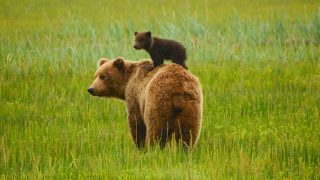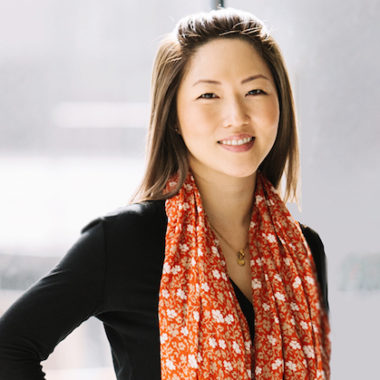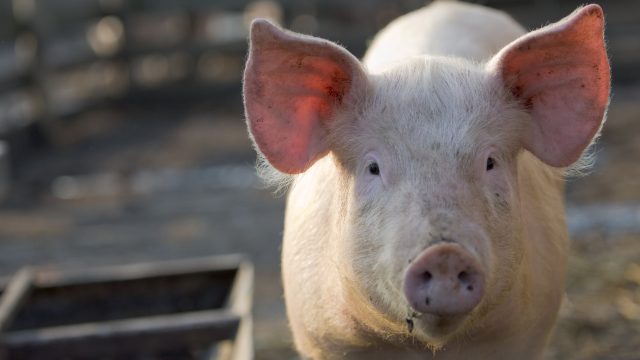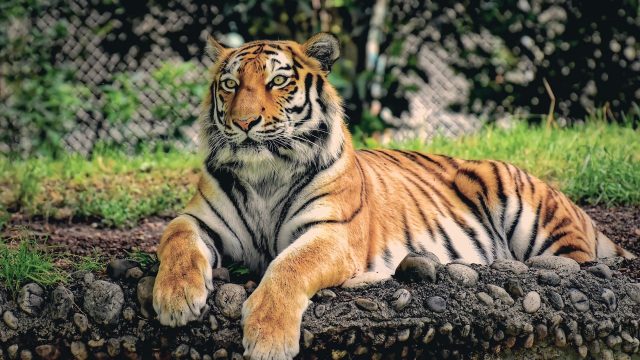
Where Are They Now? Spotlight on Erin Kim
In this continuing series of updates on former Animal Legal Defense Fund Student Chapter members, we are proud to spotlight law graduates and the ways they are helping advance animals’ interests in their current careers.
A lot of my classmates and professors really thought I was taking an insane risk getting so involved in cellular agriculture and some advised against it, but it paid off in the end!
–Erin Kim
- Where did you go to law school and when did you graduate?
University of Alberta (Canada), class of 2016
- Current position and organization:
Communications Director at New Harvest, a 501 (c)(3) non-profit advancing research in cellular agriculture
- How long have you been in your current position?

5 years now – I volunteered for New Harvest throughout law school (2.5 years) and then was offered a full-time position as Communications Director as soon as I finished my coursework!
- What do you do in your current position?
Primarily, I am responsible for New Harvest’s external content: this includes the newsletter, social media, and original writing about our research and activities. I also handle media relations for the organization and conduct outreach with new audiences. And another major part of my job is organizing the annual New Harvest cellular agriculture conference!
- Have you had any other work experiences in animal law (or animal protection generally) since graduating law school?
Nope – I got right into cellular agriculture full-time as soon as I wrote my last final exam!
- When did you take an interest in helping animals?
I’ve always loved animals and grew up with dogs, a rabbit, and fish. I had a few (all failed) attempts at vegetarianism along the way too.
- What did you study in undergrad, and what school did you attend?
I was in business school for a year, but ended up transferring into the B.A. program and majoring in Women’s and Gender Studies with a minor in Human Geography at the University of British Columbia (Canada).
- What got you interested in pursuing a law degree?
I’m going to be totally honest: it seemed like a good way to add more professional legitimacy to my liberal arts degree. I wasn’t exactly sure what kind of law I might practice (if at all), but I was lucky enough to discover New Harvest in my first year and then decided I wanted to work in the field of cultured meat somehow. So I tailored the rest of my degree to cellular agriculture as much as possible: taking courses in IP and Biotechnology Law and Policy, for example.
- When you were involved with your Animal Legal Defense Fund Student Chapter, what position(s) did you hold and what sort of activities and events did you help with and/or spearhead?
I was President of my law school’s student chapter one year, and attended the Animal Law Conferences in 2013 and 2014. We held a few bake sales with proceeds going to local animal rescue organizations, held film screenings, and hosted some really good talks by a few prominent Canadian animal lawyers (including one who worked on the “IKEA monkey” case!).
- How did being involved with your student chapter play a role in your education and career?
It actually played a surprisingly pivotal role! A few people I met at my first Animal Law Conference at Stanford in 2013 eventually led me to the discovery of cultured meat, and New Harvest. It was basically the first encounter of many that ended up with me connecting with New Harvest’s Executive Director, Isha Datar. I had no idea back then that I would end up as Communications Director, but it worked out amazingly well. I also still keep in touch with a few people that I initially met at that first conference!
- Any other noteworthy law school experiences, internships, etc?
I dabbled in criminal defense briefly, and interned at a legal advocacy non-profit called Pivot Legal Society before law school, while I was studying for the LSAT. One of my law professors, Timothy Caulfield, was hugely influential in how I approach my Comms work at New Harvest – I’m eternally grateful to him for that and remember that course very fondly.
Most of my elective courses were in environmental, natural resources, and sustainability law, and I got to study organizations like Sea Shepherd, and consider different viewpoints and legal arguments around things like the Canadian seal hunt. All of those were rewarding experiences.
Aside from that, I basically knew very early on that traditional legal practice was not for me. A lot of my classmates and professors really thought I was taking an insane risk getting so involved in cellular agriculture and some advised against it, but it paid off in the end!
- What do you hope to accomplish in your work for animals (and/or is there an accomplishment thus far that you are particularly proud of)?
Although I am definitely an animal lover, I can’t really say that animal rights and welfare are a primary motivation in my work. I don’t take an activist approach to what I do – it’s very important that I maintain a sort of dispassionate neutrality instead. That said, cellular agriculture does offer a lot of hope for animals in the food system and I’m very happy to be playing a part in this field and helping it mature. I’m grateful that my role allows me to interact with so many interesting people – from meat industry scientists, to the awesome people at JIFA (the Jewish Initiative for Farmed Animals at FARM Forward). As for an animal-related accomplishment, I just hope to one day reach a point in my life where I’m able to rescue a dog… or two!
- What has been your biggest challenge? Anything you’ve learned that you would like to share with others considering a similar path?
One of the reasons why I was deterred from pursuing traditional legal practice was the horror stories of how difficult it can be to maintain a healthy work-life balance. I soon discovered that that challenge exists in just about every profession out there, especially in a big, hyper-competitive city like New York (where New Harvest is based). It’s challenging, but not impossible to try and keep as much of a balance as you can. And I think it’s important to really be honest with yourself about whether you love what you do – since it’s very likely you will be spending a lot of time and energy doing it. I’m really glad that I took the road less travelled, and have never looked back. I would recommend an alternative career path, as long as you have sufficient information and understand the risks going in. And maybe have a backup plan too!
- What do you like best about working in this field?
How dynamic it is. It changes a lot every year and never gets boring.
- What advice would you give law students who are considering a career in animal law?
I didn’t end up pursuing animal law, but I remember very clearly some great words of advice that the “IKEA monkey” case lawyer, Kevin Toyne, gave me. He said: “See the world as it is, not as it should be.” As in, you have to fully understand and work with the system that’s currently in place, and not get overly wrapped up in your vision of all of the ways that the current system (i.e. animal legal framework) sucks. It was really pragmatic advice that I’ve found applicable in a lot of ways, at many different times throughout my career.
- Anything else you’d like to include?
Thank you very much for reaching out!
Focus Area
How We Work
Recent News
-
Court Rules Texas Food Label Censorship Law is Unconstitutional
The law imposed unclear and vague standards on plant-based meat producers that violate the First AmendmentJanuary 29, 2026 Press Release -
Defend the Big Cat Public Safety Act
Urge your federal representative to oppose H.R. 7159, which aims to undo protections established by the Big Cat Public Safety Act, including by creating exemptions allowing direct contact with big cats, such as cruel cub petting. -
State Animal Protection Laws Ranked: Oregon is #1, North Dakota #50
20th edition of ALDF state and territory ranking report highlights major advancements & trends in animal protection across the U.S.January 27, 2026 News



